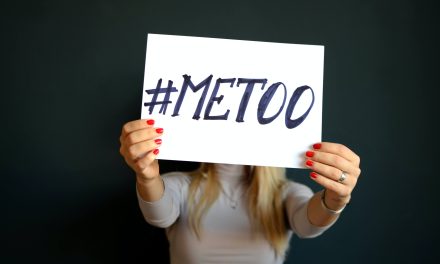The Patriarchal Influence: How Society Shapes Our Choices in Choosing a Partner (Photo: Vinicius Amnx Amano Onsa @Unsplash)
Selecting a life partner is a highly consequential and complex decision. It is not just a matter of personal preferences or compatibility but also a choice shaped by attraction and cultural, societal, and personal beliefs. While we may not always realize it, patriarchal systems significantly shape our preferences and expectations when choosing a partner. These systems can subtly influence our decisions, leading us to prioritize certain traits and characteristics over others. Recognizing and challenging these influences is crucial for selecting a partner that aligns with our values and desires rather than being dictated by external forces. By doing so, we can overcome these societal pressures and find a partner who shares our vision for an equal and fulfilling romantic relationship.
Table of Contents
Gender Roles and Expectations:
The ongoing debate surrounding gender roles and expectations has been a hot topic for many years. Our culture has imposed strict guidelines and standards for what we perceive as acceptable gender behaviors. Men are expected to be strong, dominant providers who excel in leadership roles. At the same time, women must prioritize caring for their families over career pursuits. These norms can often influence our preferred gender stereotypes, harming our personal lives. Questioning and challenging these gender-based assumptions is essential to create a more equal and accepting society.
Let’s break free from the molds that depict how we should behave and start embracing the unique qualities that make us who we are.
Social Conditioning and Media Representation:
The impact of the media on self-worth and relationships is undeniable. From movies and TV shows to social media and advertising, the messages we receive about love and romantic partnerships can often be skewed and unrealistic. Not to mention promote unhealthy standards and expectations and romantic sexual involvement. Sometimes, the media perpetuates that there is only one right partner for us, making us feel incomplete without finding that perfect match. Or the belief that we must tolerate toxicity in a relationship as an adult. Additionally, the media often focuses on physical intimacy and attractiveness as the primary factors for successful relationships, neglecting the importance of more intimate connection, physical intimacy, and romantic feelings.
As a result, people may set unrealistic expectations for their partners and feel disappointed when these expectations are not met. It is essential to recognize the role of social conditioning and media representation in our perception of a good relationship and actively curate more diverse and accurate representations in our choice of input, whether it is empathetic acceptance or entertainment.
Economic Factors and Financial Stability:
The societal pressure to prioritize financial stability can take a toll on relationships. Not to mention society’s obsession with the superficial value of having more. Many of us might fall prey to this trend and choose a partner with impeccable financial acumen but at the cost of emotional connection and physical intimacy. The patriarchal system significantly emphasizes the provider role of men ruling family over romantic love. As a result, men are expected to have stable careers with high-earning potential. The woman managing the home economics is often undervalued and is conditioned to avoid conflict. The woman often is trained to put her own needs last. Of course, in today’s complex world, patriarchal expectations are even more confused when the genders have switched roles. The woman is the breadwinner but is still expected to have a significant share of the family responsibilities.
While financial security is a vital factor in any healthy relationship, it should not be the only one. When we prioritize financial security over other essential aspects of a healthy relationship, such as mutual respect, compatibility, and emotional connection, we risk feeling emotionally alone. In the rat race of getting ahead, this can spawn hotly contestable conflicts over money when a relationship ends, with both parties feeling unfairly treated.
Family and Cultural Pressures:
Choosing a partner can be a daunting task, or by contrast, the opportunity to decide for ourselves may not be accepted when family and cultural pressures are involved. While these factors can bring a sense of belonging and tradition to our lives or satisfy family desires, they can also hinder our ability to select the right partner.
Often rooted in patriarchal values and some archaic expectations, adhering to specific cultural traditions or marrying within particular communities can limit our options, leaving us with little agency in our romantic lives and a dramatically lower quality of life. These pressures can be particularly challenging for those looking to challenge traditional gender roles or pursue relationships based on love, individual compatibility, and personal preferences. It takes courage and determination to follow what feels suitable for us, but breaking free from the weight of family and cultural expectations can be a frightening, empowering, and liberating experience.
Challenging Patriarchal Influences:
Gender equality and healthy relationships should go hand in hand. However, deep-seated societal expectations that uphold patriarchal norms often influence our partner’s choices. Recognizing these influences is the first step towards creating space for individual autonomy and diverse gender expressions, which is essential for building strong and fulfilling relationships.
Challenging these norms and sifting through societal expectations takes a conscious effort. Still, it’s crucial to break free from the constraints of the patriarchal system.
How can we do this?
Critical self-reflection, open conversations, and actively questioning societal expectations that stifle our progress toward equality available possibilities to share decision-making responsibilities and build relationships built on equal footing.
Our choices in selecting a life partner are not solely based on our preferences and desires. Instead, they are heavily influenced by the patriarchal norms and values deeply embedded within our societies.
These norms are reflected in the gender roles assigned to men and women from a young age, the media representations of love and relationships, the financial considerations that often dictate our choices, and the family pressures we face as we navigate through life.
By becoming aware of how these factors shape our choices and experiences, we can actively challenge them and make more informed decisions. Moving towards a more equal and just society allows us to prioritize compatibility, shared values, and emotional well-being in our relationships, creating a foundation for our mental and physical health and more fulfilling romantic relationships.
Re-educating the next generation
Get the Word Out at School: Schools and community groups must implement programs for healthy relationships. They can organize workshops, invite guest speakers, and host events about the importance of respect, open communication, and shared values when picking a partner.
Use Media to Spread the Message: Movies, TV shows, and social media greatly influence how we think. Luckily recent movements like feminism, mental health, and gender identities have piqued enough interest to start to see an influx of programming centered around disrupting social norms and patriarchal beliefs.
Share Inspiring Stories: Let’s hear from people who have made excellent choices in partners! Personal stories can motivate others to prioritize and inspire healthy relationships too.
Teach Relationship Skills in School: Also known as a soft skill- a value sought after in the working world. The best-seller “How to Win Friends and Influence People” by Dale Carnegie emphasizes the importance of hearing everyone’s opinion authentically, a precursor to sharing the decision-making and promoting more equality.
By including relationship education in classes, students can learn communication skills, empathy, and what makes a relationship healthy—making more suitable choices when finding a partner, whether in a business or romantic relationship.
References:
- Hooks, B. (2004). The Will to Change: Men, Masculinity, and Love. Washington Square Press.
- Butler, J. (1990). Gender Trouble: Feminism and the Subversion of Identity. Routledge.
- O’Brien, J, Hobbs, M, Rice, (2018). Gender and Women’s Studies: Critical Terrain. Wilfrid Laurier University Press.
- Gill, R. (2008). Gender and the Media. Polity Press.
- Collins, P. H. (2000). Black Feminist Thought: Knowledge, Consciousness, and the Politics of Empowerment. Routledge.





